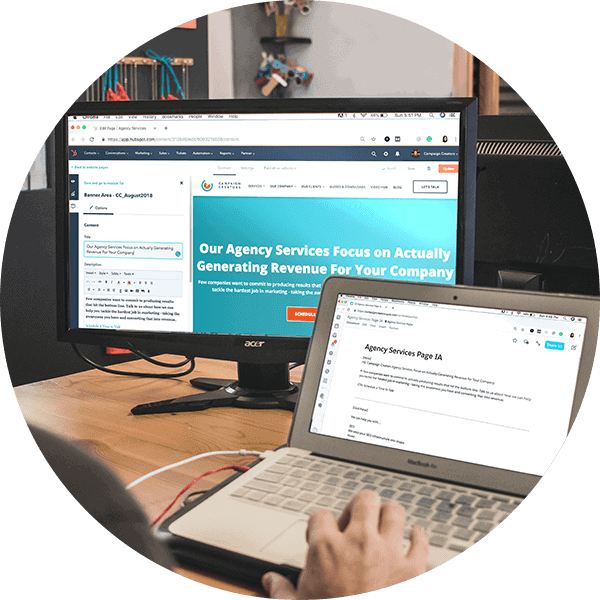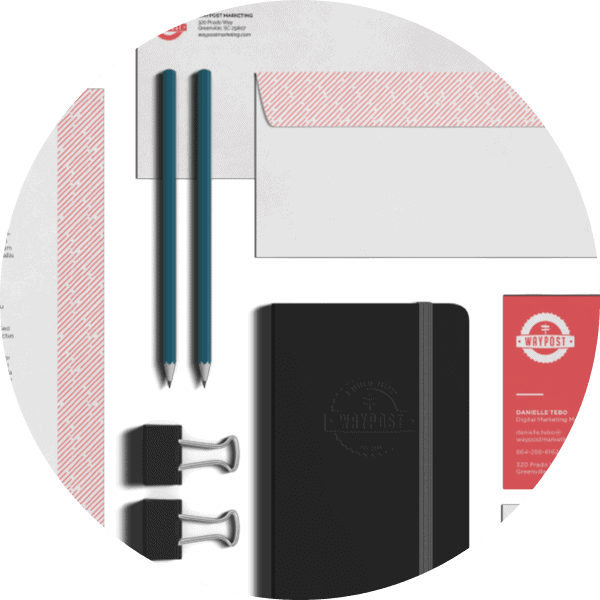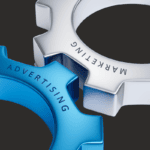How many trade shows do you attend in a year? How many people have you ever met there and continued to communicate with? Now try to imagine the potential exposure your company could gain by doubling down on your digital marketing efforts. The difference must be striking.
The point is that manufacturing marketing isn’t what it used to be….
Manufacturers who continuously innovate and aim to stay ahead of the curve in their product offerings should apply the same improvement-driven spirit to their marketing strategies. This involves embracing new tactics better adapted to their target audience’s changing needs and preferences.
This article explores the various facets of modern manufacturing marketing, shedding light on the strategies and tactics that manufacturers can adopt to remain competitive and build long-lasting customer relationships in the digital age.
Manufacturing as B2B, Marketing as B2C
Traditionally, manufacturing marketing has been firmly rooted in a B2B mindset. This approach was heavily product-centric, with marketing efforts highlighting the manufactured goods’ features, capabilities, and advantages. The messaging was often heavily seasoned with technical terminology, creating a sense of distance and making it less relatable.
However, the landscape of manufacturing marketing has undergone a significant shift, moving towards a more B2C-like, customer-centric approach. Today, even manufacturing clients in the B2B landscape are seeking a real connection with the brand, a connection that is based on reliable information, experience, and trust. Thus, as in B2C marketing, manufacturers should center their strategies around creating customized buyer experiences. Marketing messages should be more personal, directly addressing customers’ needs, challenges, and pain points. Storytelling techniques are powerful for transforming technical-heavy content into messaging that resonates and establishes a stronger connection with customers.
So, what can you do about that?
- Know Your Audience: By developing a deep understanding of your customers, you can create targeted messaging better. At Waypost, we call this market research process a Discovery Project, and it serves as the foundation of all our marketing efforts.
- Leverage Data Monitoring: By closely monitoring marketing analytics, you can adapt your marketing strategies accordingly, ensuring messages remain relevant and resonate with the target audience throughout their buyer’s journey.
- Embrace Marketing Automation: This technology facilitates the delivery of tailored customer experiences, aligning messaging with each individual’s specific stage in the buyer’s journey rather than a one-size-fits-all approach.
- Invest in Valuable Content Marketing: Content that is valuable and resonates helps build trust, authority, and a strong brand presence.
- Incorporate Storytelling Elements: Incorporating storytelling into marketing campaigns will make technical information more relatable, memorable, and engaging, strengthening the relationship with the clients in the long run.
Lead Generation & Inbound Marketing for Manufacturers
What does lead generation in manufacturing marketing look like? Historically, manufacturers relied on tradeshows and cold calls to generate leads and expand their networks. While these methods still hold value, more is needed to maximize reach. It’s crucial to recognize that modern customers heavily base their decision-making on online self-education. By the time they engage with you, they have likely conducted extensive research about your company, products, unique selling points, and brand identity. If you haven’t done your market research first, chances are that your prospects know about you much more than you know about them.
The key takeaway is that while traditional manufacturing marketing materials like printed collateral and tradeshow booths are essential, they often miss out on the vast audience actively searching for solutions online, especially in an increasingly competitive market.
This is where the balance between outbound and inbound marketing becomes crucial. While outbound marketing pushes marketing messages to audiences in a more market-centric approach, inbound marketing adopts a customer-centric approach. It delivers educational content and crafted messaging in a more mindful way, where brands can demonstrate their industry knowledge and commitment to solving customer challenges. Inbound marketing equips manufacturers with tools and strategies to nurture leads effectively over time, enabling them to stay top-of-mind by consistently providing valuable insights.
So, what can you do about that?
- Build A Strong Online Presence: From a powerful website to social media activities, email marketing, and even paid ads — solidify your visibility where potential customers are actively searching.
- Ensure Cross-Channel Alignment: As you diversify your digital and non-digital marketing channels, maintain consistent and synchronized messaging and style to reinforce brand recognition.
- Invest in Search Engine Optimization (SEO): Prioritize SEO practices to improve Google discoverability and enhance brand visibility and credibility for your manufacturing marketing efforts.
- Integrate Offline & Online Marketing Channels: Develop a unified, cohesive marketing strategy that blends inbound and outbound marketing approaches, maximizing the benefits of each method.
Online Relationship Building in Manufacturing Marketing
The digital revolution has transformed how manufacturers build and nurture customer relationships. For decades, in-person interactions and face-to-face relationship building were the primary avenues for fostering customer connections. However, the modern manufacturing marketing landscape has shifted online, with communication between manufacturers and customers predominantly occurring through digital channels. As a result, online avenues have become primary for nurturing relationships and fostering customer loyalty.
This trend underscores the critical need for manufacturers to develop a well-thought-out and comprehensive digital marketing strategy. Through effective digital marketing efforts, manufacturers can engage with customers across multiple digital touchpoints spanning their entire journey – from initial awareness to post-purchase support. By leveraging content marketing, social media, email campaigns, and other digital marketing tactics, manufacturers can nurture relationships with potential and existing customers over an extended period, fostering trust, loyalty, and long-term brand advocacy.
So, what can you do about that?
- Embrace Omni-Channel Marketing: Adopt multiple marketing channels aligned with your target audience’s content consumption preferences for a cohesive customer experience.
- Develop a Comprehensive Content Marketing Strategy: A well-crafted, data-driven content marketing strategy, complemented by a content calendar, is essential to ensure consistent information flow across channels.
- Implement Personalization Tactics: Leverage targeted marketing and segmentation to build and nurture relationships more effectively online.
- Optimize User Experience (UX): To enhance the overall customer experience, ensure your digital platforms are user-friendly, responsive, and optimized for mobile devices.
Strategic Digital Marketing for Manufacturers
In this rapidly evolving landscape, manufacturers who embrace change and prioritize customer-centricity will survive and thrive, strengthening their positioning as industry leaders and innovators at all levels.
While it may initially feel overwhelming, ambitious manufacturers don’t have to navigate this transition alone. Waypost specializes in digital marketing for manufacturers, offering comprehensive services from lead generation through contact strategies to marketing and sales enablement. Contact us today if you’re ready to embrace change and take your manufacturing marketing forward.










